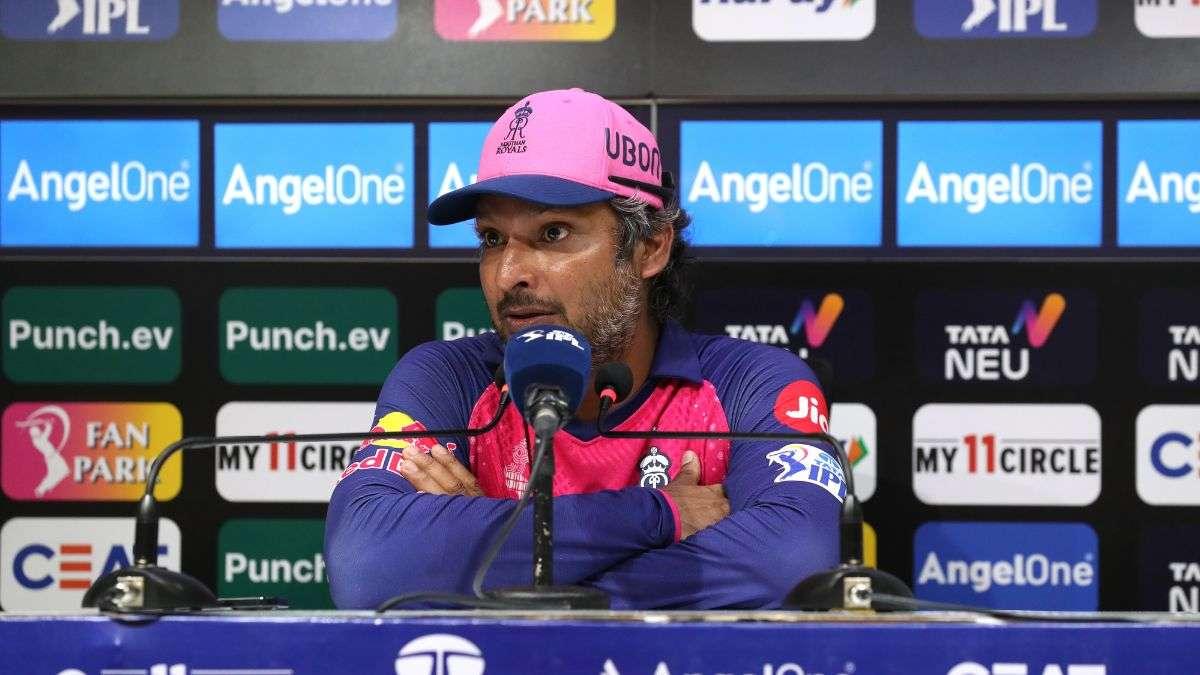
In what was a critical encounter in the later stages of the Indian Premier League’s 17th edition, former champions Chennai Super Kings once again showed their prowess by securing a narrow five-wicket triumph over the formidable Rajasthan Royals at the MA Chidambaram Stadium. This matchup, occurring on a scorching Sunday afternoon, left Rajasthan’s hopes for an assured playoff spot hanging in balance.
Following the conclusion of the game, Rajasthan Royals’ head coach and cricket legend Kumar Sangakkara addressed the media, not shying away from expressing his dissatisfaction with the batting display put forth by his team. Sangakkara underlined that the Royals’ performances at the crease, especially during the middle overs, lacked the venom and vigor that had been anticipated from them.
The clash saw the Royals lose the solid foundation their openers set after their dismissals. A glaring drought of boundaries in the subsequent overs became the focal point of Sangakkara’s critique. While analyzing the pitch conditions, the Sri Lankan great mentioned that the wicket at the Chepauk stadium played slow, which was expected, but that the batsmen did not adapt to the conditions efficiently.
In his post-match commentary, Sangakkara conveyed his observations with clarity. “We expected the pitch to be slow, and it did exactly that. I thought Chennai bowled really well. In terms of our batting, we lacked a lot of intent through that middle phase. Even in the first few balls that could have been put away, we lost momentum with all those dot balls,” he asserted. Emphasizing the consequences of the missing assertiveness, he added, “We did not have the intent to hit the gaps and run hard. I know it was quite hot for the players, but Chennai bowled well, and we were 25–30 runs short. This was a 170-180 wicket, but we were too short.”
As the scoreboard reflected at the end of their innings, Rajasthan could construct a total of only 141 runs at the cost of five wickets from their allotted 20 overs – a tally Sangakkara viewed as insufficient given the nature of the wicket, where something in the range of 170 to 180 runs could have been a challenging score.
The defeat added a third consecutive setback for the Rajasthan Royals, placing additional pressure on them to confirm their playoff berth which had seemed a mere formality after their resounding start to the season. The ‘Pink Army’ now finds itself in an awkward spot, needing at least one victory from their remaining two fixtures to avoid any potential slip-ups that could derail their playoff aspirations.
With Kolkata Knight Riders already having stamped their authority by cementing a top-two spot, Rajasthan’s journey doesn’t get any easier. Their next confrontation brings them face to face with Punjab Kings at the Barsapara Stadium in Guwahati, a match destined to be played on Wednesday, May 15. The Royals coaching staff and players will reflect on their current strategies and return to the drawing board to address the highlighted shortcomings in their batting order.
On the other side of the coin, Chennai Super Kings, with their reputed ability to climb up from the bottom, demonstrated once more why they are considered one of the most successful franchises in IPL history. As the tournament inches closer to the knockouts, both teams will rigorously vie to secure their spots as the coveted top four narrows down.
In related news, the IPL continues to blaze trails with emerging talents stepping up to the limelight, such as Ayush Badoni, who has been repaying the faith kept in him by the Lucknow Super Giants management. Meanwhile, international squads are also shaping up for future engagements, with Bangladesh recently announcing a 15-member squad led by Najmul Hossain Shanto for the T20 World Cup 2024. Conversations around red ball cricket persist as a senior Indian pacer, sidelined in the IPL auction, professes his love for the longer format, underlying the rich tapestry of stories this grand sport continues to weave.










